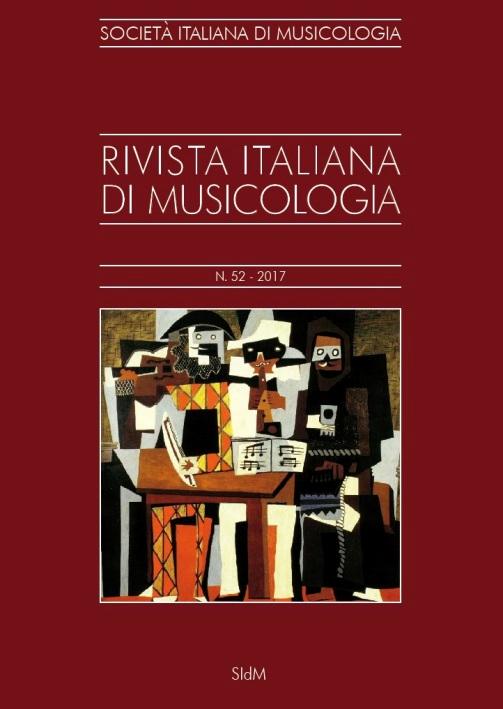«Dusty shelves of Gothic lore». La ricezione della modalità gregoriana da Rameau a Gevaert
Abstract
The ritual practice and historical-analytical study of Gregorian chant in the eighteenth and nineteenth centuries are topics still scarcely explored by current musicology. This contribution intends to examine the interpretation that historians and theorists of that period gave of a particular aspect of Gregorian chant, i.e. the modal system; the article will proceed from the analysis and commentary of wider-scope works (such as biographies, encyclopedias and histories) to some late-19th-century treatises more specifically dedicated to Gregorian chant. Until the second half of 1800 – when a new interest for medieval music arose – music historians were still bound to a treatise-writing practice that had largely been kept unaltered since the mid-eleventh century: this was certainly true for what concerned the so-called ‘scalar’ notion of Gregorian and late Renaissance modes (frequently equated). On the other hand, Auguste Gevaert (1828-1909) could take advantage of the more dependable medieval-Gregorian scholarship that started only in the second half on nineteenth century. His research is revolutionary under several points of view: he broke several centuries-old historiographical traditions, the most striking case being the ‘myth’ of Ambrose and Gregory as the inventors of respectively the authentic and plagal modes. First mentioned in the [Pseudo]Alcuin, this argument had in fact resisted for a whole millennium, namely until Gevaert. In addition, he reevaluated the ‘qualitative’ approach to modality, typical of the first Carolingian theorists, and gave new rigour, methodology and critical thinking to the Gregorian research. By giving a renewed musicological dignity, equal to that accorded to the research on modern music, to Gregorian studies, Gevaert positively projected them towards the twentieth century.


